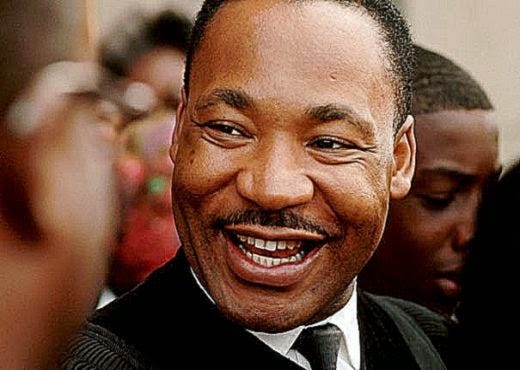The Solver and the Tryer
In the week after the recent U.S. election, I wrote a somewhat bleak piece expressing my personal frustration about the state of…well, everything. I felt frustrated by the persistent message we continue to send to both young men and young women — that a man can do and say and represent the most hideous, awful, backward things to women and anyone else, and they will still be rewarded with power, prestige, and public standing.
Now that some time has passed, you know what? I’m still frustrated. But I’m also feeling something else.
Martin Luther King, Jr. famously said that “the arc of the moral universe is long, but it bends toward justice.” I think about that often. The phrasing of it is interesting to me. King seems to be addressing a self-evident truth. It’s a descriptive sentence, describing the metaphorical “arc of the moral universe” as something already in place. You can visually imagine this universe-sized arc, spreading out parabolically to some distant curve before eventually — at some almost imperceptibly distant point in the future — beginning to curve towards the ultimate end point of social, universal justice.
King’s approach to nonviolent resistance, inspired by his study of Ghandi, seems to align with this interpretation. He organized “sit-ins,” with the implication that simply by insisting on being in places where Black people had a human right to be, the natural moral arc of the universe would eventually bend toward policy and public opinion ultimately recognizing that right.
But if you look at King’s words and actions over the course of the lifetime, you realize that while he advocated nonviolent protest, he certainly didn’t advocate inaction.
He referred to equal rights as a “noble struggle,” and described the way that “freedom is never voluntarily given by the oppressor; it must be demanded by the oppressed.
He even said this:
Human progress is neither automatic nor inevitable... Every step toward the goal of justice requires sacrifice, suffering, and struggle; the tireless exertions and passionate concern of dedicated individuals.
In fact, King’s full quote about the arc of the moral universe actually begins with a statement of action: “We shall overcome because the arc of the moral universe is long, but it bends toward justice.”
The long arc of the moral universe doesn’t bend. It is bent. It is the object, the thing acted upon by the subject. And who is the subject?
It’s us. You and me, and the people we know, and the kids we raise, and the young people who look up to us. We bend it by actively trying to bend it. No one of us has the solution, and no one of us can do it alone. And yes, sometimes that arc is so long and that “noble struggle” so slow that it seems like it’s moving backward.
But we can and do bend that arc, by struggle and sacrifice. By trying.
Some of us, like King, do more than their fair share of bending. Others, like myself, must content ourselves to do our little bit of pulling at that arc, shoulder to shoulder with everyone else.
It’s this interior journey, from feeling the need to have all the solutions to accepting your individual role as a single, small part in the bending of the moral universe, that my latest song from my Master’s project is about.
Please enjoy “The Solver,” free to stream now on all music platforms.



